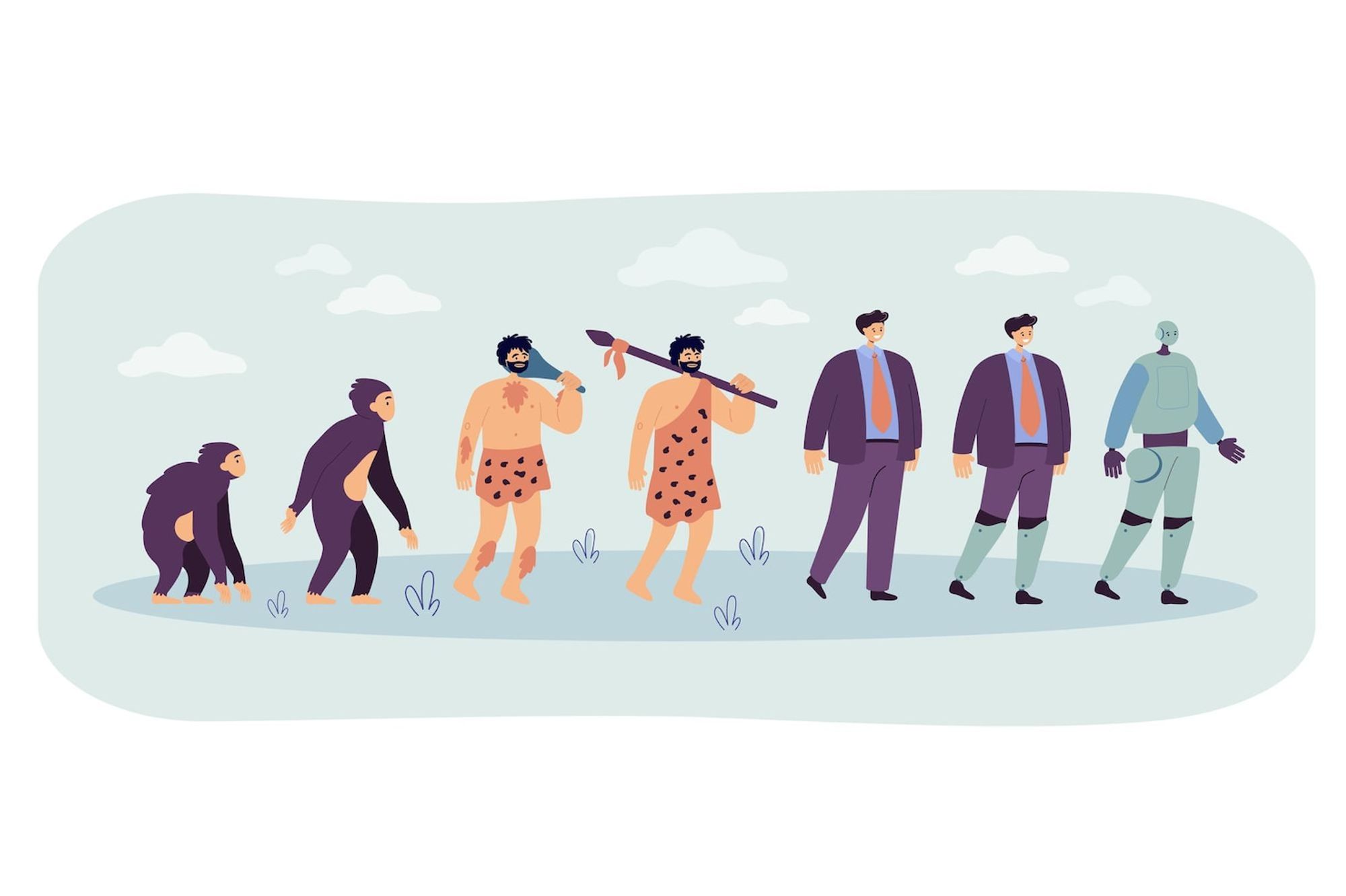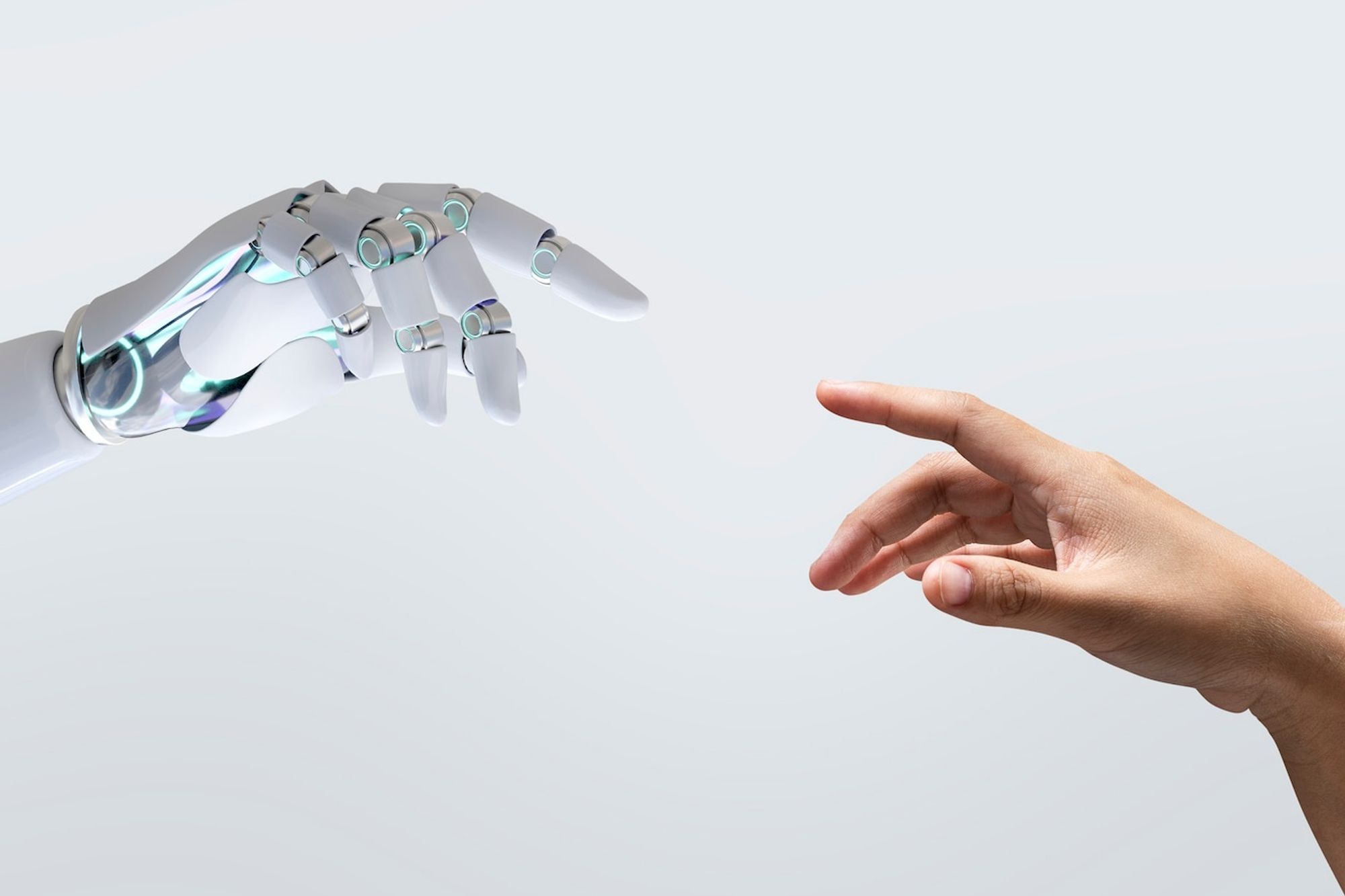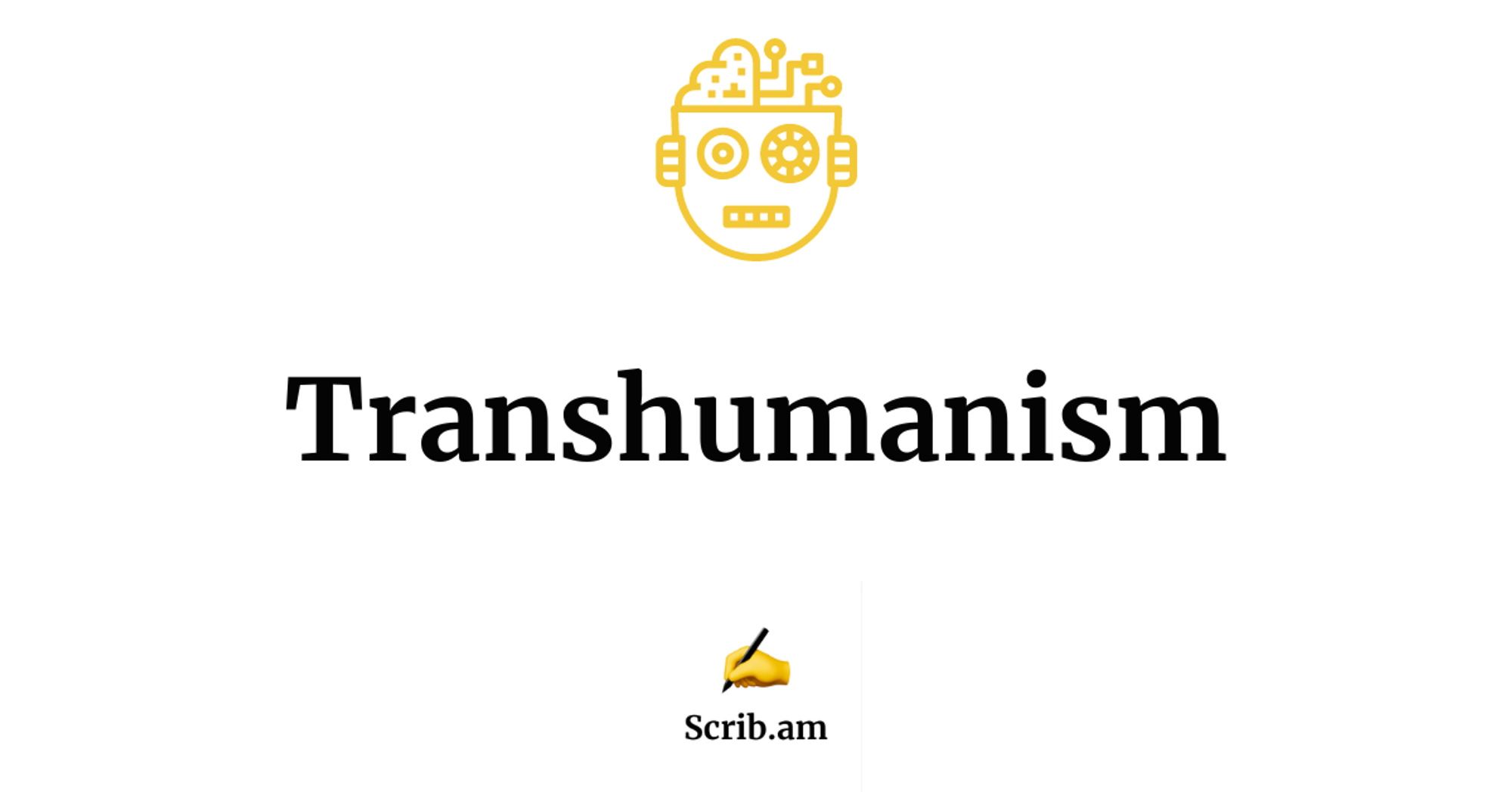Transhumanism is a social and philosophical movement devoted to promoting the research and development of robust human-enhancement technologies.
Source: Britannica
We’re constantly evolving.
We’ve come a long way since our humble bipedal beginnings, c. 4.4 million years ago.
In a perpetual quest to improve our physical and cognitive abilities and our efficiency in an ever-growing competitive landscape, we’ve developed increasingly complex technologies to enhance our capabilities. It started with rudimentary tools, then machines, followed by computers and digital networks, now cheaply accessible by everyone at the tap of a button.
Becoming Cyborgs
Transhumanists consider that our next move, when we’ll reach the limits of exoskeletons, robots and virtual assistants, will be to merge with technology, to become hybrid creatures.
Neuralink, a company co-founded by Elon Musk, is developing implantable brain–machine interfaces (BMIs). The first purpose of those implants will be to help cure neurodegenerative diseases such as Alzheimer or Parkinson but they will also be a first step towards the cyborg future of humanity.

Imagine a time when every individual will be able to tap into the stream of universal knowledge with the flick of an eye, as envisioned in the Black Mirror series and other futuristic stories.
Google Glass was an early example of this sort of omniscient connectivity. Recent advances in augmented / mixed reality, such as Microsoft Hololens offer significant improvements. But those devices are still external, not integrated, enhancers. Neuralink and the likes will push the game to another level.
Are you in?
Being constantly - and intimately - integrated with the information network will raise a number of sociological and ethical questions. Do we really want our brains to be interconnected in a giant data mesh? Don’t we aspire to some level of complete privacy, fully off the grid?
We could argue that at some point (temporary) disconnection will become a privilege for the happy few. As we’ve seen in recent crises such as the aftermath of 9-11 or the COVID-19 pandemic, most people are ready to give up some of their privacy in exchange for security or health benefits.
Moreover, if everyone around you gets gradually enhanced, you’ll probably prefer to join the microchip movement instead of losing out to the cyborgs. The gregarious sense of belonging is usually stronger than the urge for freedom and self-expression.
Always Upwards
It doesn’t make a difference if we live in a non-deterministic world, in a block universe or even in a simulation, there’s only one way: forward and upwards.
From an economical point of view, we can’t stand still and don’t like flat lines. We always need new ideas, new stuff, new achievements, to push us right on the arrow of time and up on the scale of skills and knowledge. There will always be more data to record, more craft to learn and information to process. It seems that to maintain our creative trajectory, we simply can’t avoid a transhumanist future: it’s like a self-fulfilling prophecy.

The journey towards Singularity is going to be a bumpy ride, with its fair share of doubts and frictions, but we’ll finally get there, birthing a new kind of species: more resilient, stronger, smarter (at least in terms of info processing power), ready to become a multiplanetary explorer, and even beyond, a grabby alien.
Still the same story…
The challenges will still be the same as the ones we’ve experienced since the dawn of civilization 4,000 years ago. Technological empowerment is by essence agnostic in terms of moral purpose.

In the right hands, innovations are uplifting and create new opportunities, they’re the seeds of Progress. In the wrong ones, inventions increase the capacity to cause harm, at an exponential scale. Since it’s easier in a world of contention to wreak havoc than to sow peace, we should probably be worried, except if we believe that our survival instinct can override the pull of nothingness.
I won’t be there to witness the outcome, hopefully.

